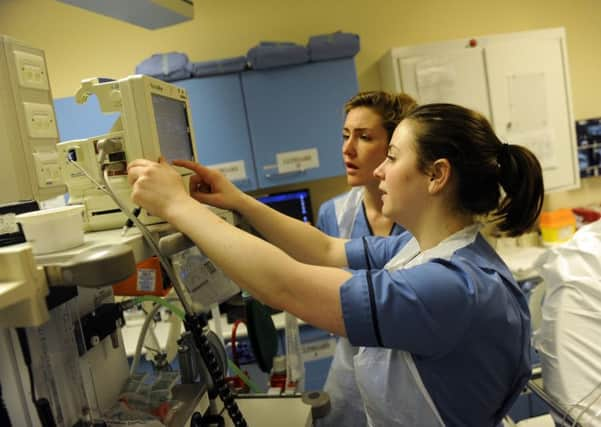Leader comment: SNP's extra £655m to cut NHS waiting times is a gamble


There had been speculation that Health Secretary Jeane Freeman would decide to scrap the legal guarantee that NHS patients are treated within 12 weeks, given the law has been broken more than 150,000 times since it was introduced in 2012.
No less than Sir Harry Burns, former chief medical officer, had called the flagship policy a mistake – saying doctors should be given greater leeway to make decisions based on clinical need – so she would have had a degree of political cover to do so.
Advertisement
Hide AdAdvertisement
Hide AdHowever, Freeman instead doubled down on the SNP’s commitment, pledging an extra £655 million to help reduce waiting times over the next two-and-a-half years, on top of £200m currently being spent on treatment centres. “Our central aim is to significantly improve the experience of patients waiting to be seen or treated,” she said. By 2021, the goal is for 95 per cent of outpatients and 100 per cent of inpatients or day cases to wait less than 12 weeks to be seen, while 95 per cent of cancer patients wait less than within 62 days.
The crisis in the NHS has become one of Scotland’s most important political issues in recent years, with missed targets just one sign of a system that is struggling to cope with rising demands from the public.
The health service has been struggling to fill vacancies, increasing the pressure on already over-worked and under-pressure staff. Small wonder then that a ScotPulse poll earlier this year found just 14 per cent of Scots thought the NHS received adequate funding. It is a credit to the hard work of staff that the same poll found eight out of ten people thought the NHS was a symbol of what is good about Scotland.
Many will point out that 2021 is nearly a decade after the waiting-time guarantee was first made, which is a heck of a long time to fulfil a political pledge. But if the money is spent wisely and transforms the NHS, the SNP will doubtless get considerable credit.
However, ploughing in such a large sum is also a gamble with a real risk that it will simply be swallowed up by rising demand from our ageing and increasingly obese population. If what has become an all-too-familiar story of unacceptably long waiting times persists, then the SNP government is likely to pay a heavy price at the ballot box. That could bring a new party to power, but the mission will stay the same: to fix the NHS.